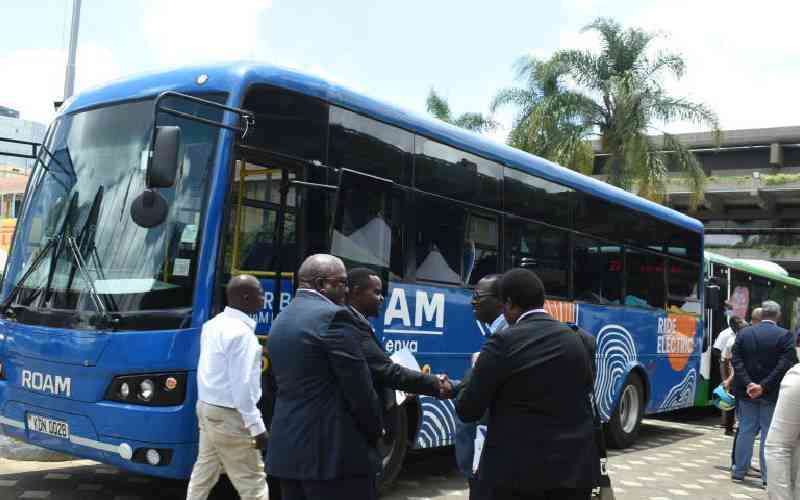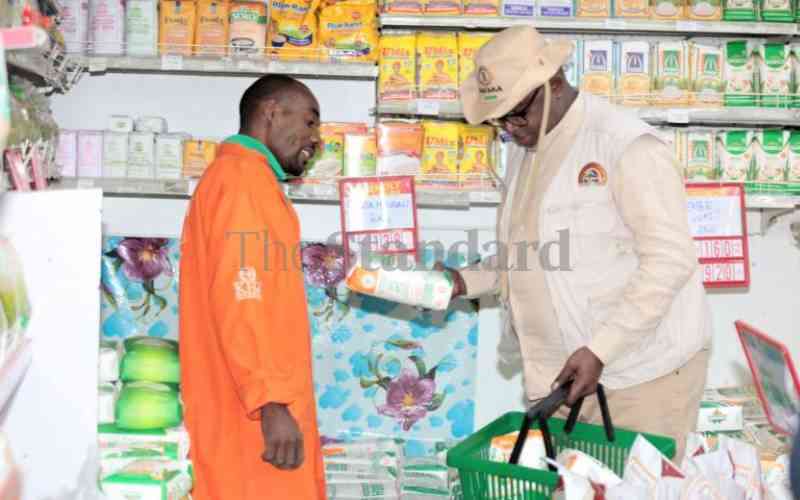By Macharia Kamau
The proposed regulations to standardise cooking gas regulators and valves could ruin the strong loyalty that consumers have in certain brands.
This is because liquefied petroleum gas (LPG) marketers won’t be able to lock in consumers to their brands with unique regulators.
"The new regulations give the consumer freedom of choice to buy any cooking gas because they won’t be tied to a specific brand," said Ms Wanjiku Manyara acting general manager of the Petroleum Institute of Eastern Africa (PIEA) commenting on what the rules mean to consumers at a past interview.
Consequently, LPG marketers will have to go an extra mile to retain customers.
Though oil marketers and others in the LPG business might rely on psychological factors like past consumer experience for continued loyalty, some are not taking chances and have started marketing campaigns to shore up visibility in the market and strengthen their brands.
LPG marketers have been running advertising campaigns across all media. For instance, Kenya Shell has a safety awareness campaign running on LCD screens at point of sale terminals to promote its LPG brand, Afri Gas. Kenol/Kobil has a promotion for its K-Gas executed on different media, including billboards.
"The ‘deal smarta’ promotion is aimed at improving our brand presence. Although we have a strong presence in the market, we still need to strengthen our brand," said Mr Charles Njogu Kenol/Kobil public relations manager.
Retail network
Other than the campaigns, marketers need to strengthen their retail network.
"Companies will have to rely on their retail networks to market LPG products and those that have wide networks will have an advantage," Njogu said.
Oil marketers doubling up as LPG dealers have an edge because service stations form part of their retail network, this is in comparison to others that rely on independent retailers like supermarkets. Retail chains also form an important part of the distribution network hence marketers are looking at supermarket chains as important retail points.
Indeed more consumers, especially in major towns, are increasing turning to supermarkets for their shopping as they offer the convenience of buying many products under one roof.
"In addition to our retail outlets countrywide, we have links with major supermarkets," Njogu said.
The regulations, gazetted in 2006, were supposed to be effected in October 2007 but were put on hold following an outcry by the industry that the government had not allowed enough time to effect the necessary changes. They were allowed a grace period which lapsed last month.
An LPG management committee comprising different players in the sector will oversee gas cylinder exchange among the companies that form the LPG Exchange Pool to promote fair play.
The body will be supervised by the ministry of Energy and with powers to punish unethical marketers.
"We do not expect any hoarding of cylinders or other uncouth practices because a dealer has to trade in their own cylinders and those of their competitor in exchange for filled cylinders," said Njogu.
 The Standard Group Plc is a multi-media organization with investments in media
platforms spanning newspaper print operations, television, radio broadcasting,
digital and online services. The Standard Group is recognized as a leading
multi-media house in Kenya with a key influence in matters of national and
international interest.
The Standard Group Plc is a multi-media organization with investments in media
platforms spanning newspaper print operations, television, radio broadcasting,
digital and online services. The Standard Group is recognized as a leading
multi-media house in Kenya with a key influence in matters of national and
international interest.
 The Standard Group Plc is a multi-media organization with investments in media
platforms spanning newspaper print operations, television, radio broadcasting,
digital and online services. The Standard Group is recognized as a leading
multi-media house in Kenya with a key influence in matters of national and
international interest.
The Standard Group Plc is a multi-media organization with investments in media
platforms spanning newspaper print operations, television, radio broadcasting,
digital and online services. The Standard Group is recognized as a leading
multi-media house in Kenya with a key influence in matters of national and
international interest.









